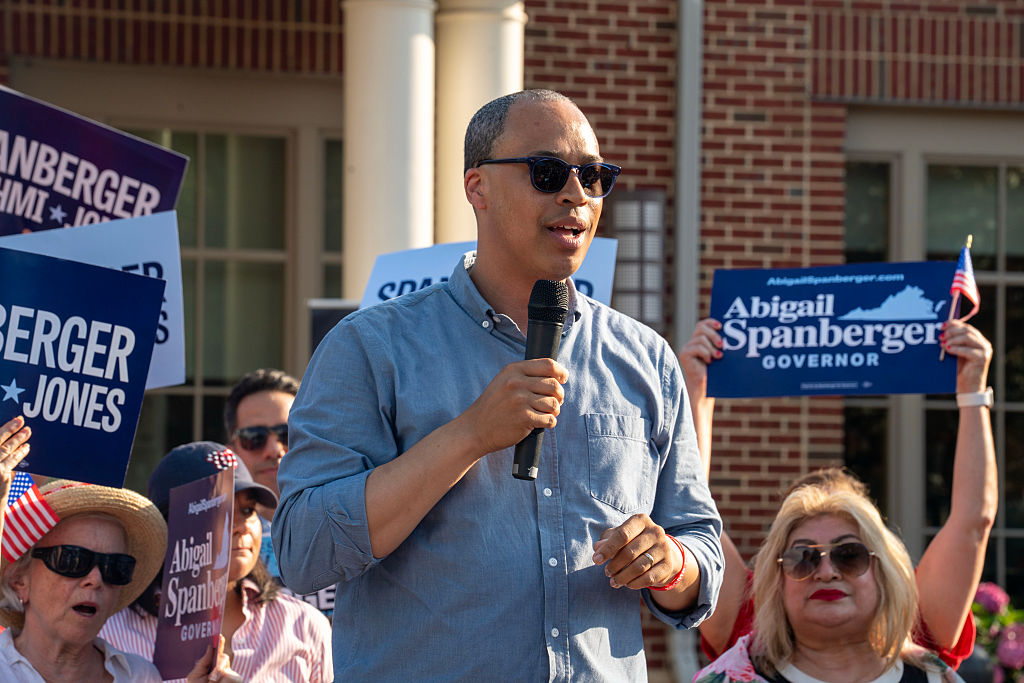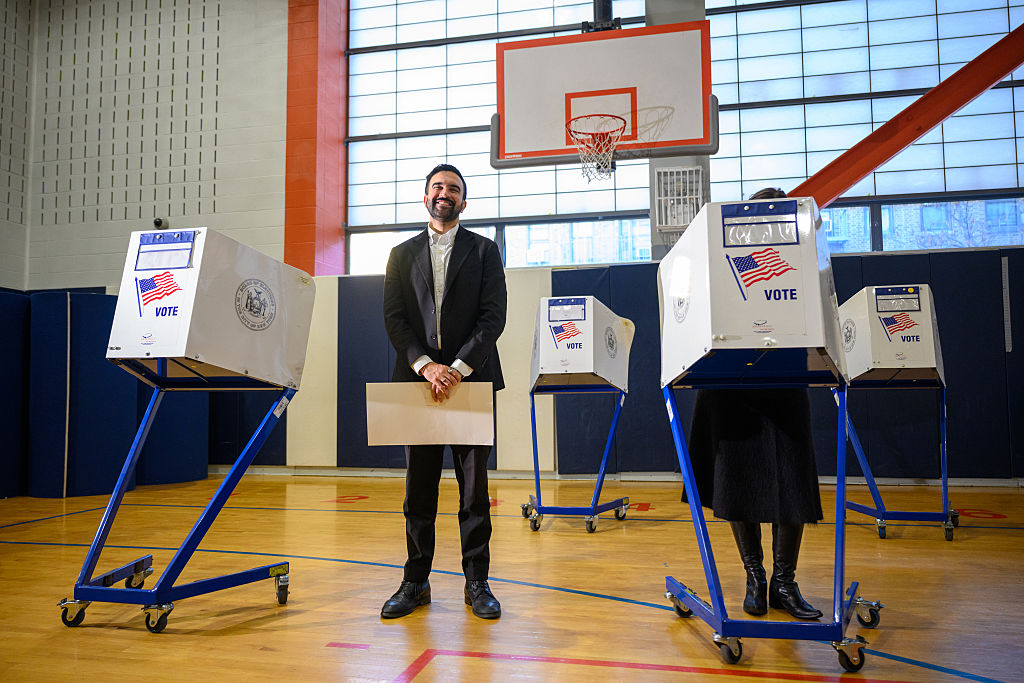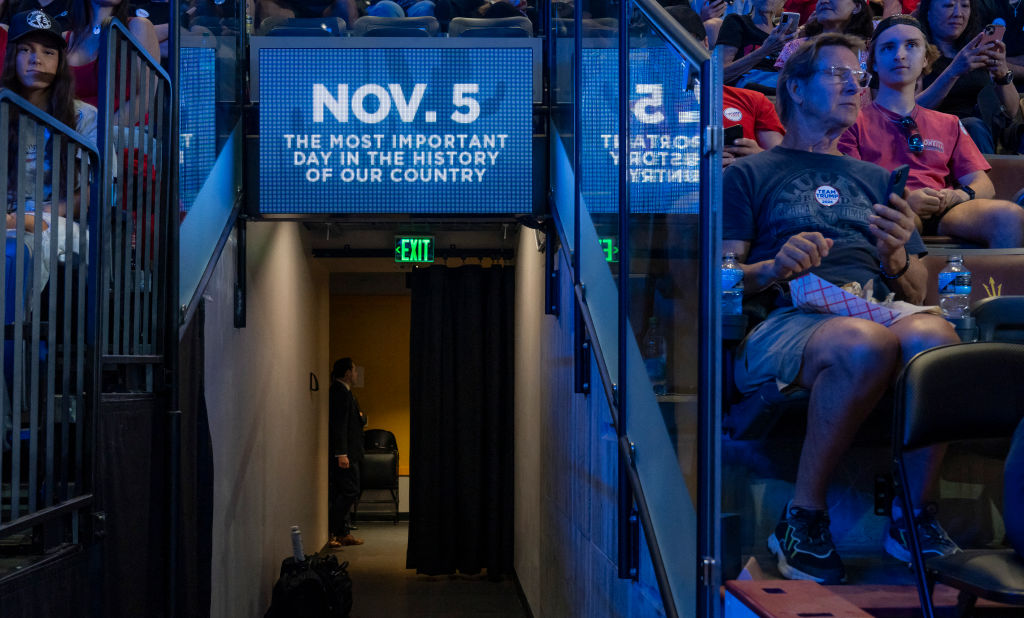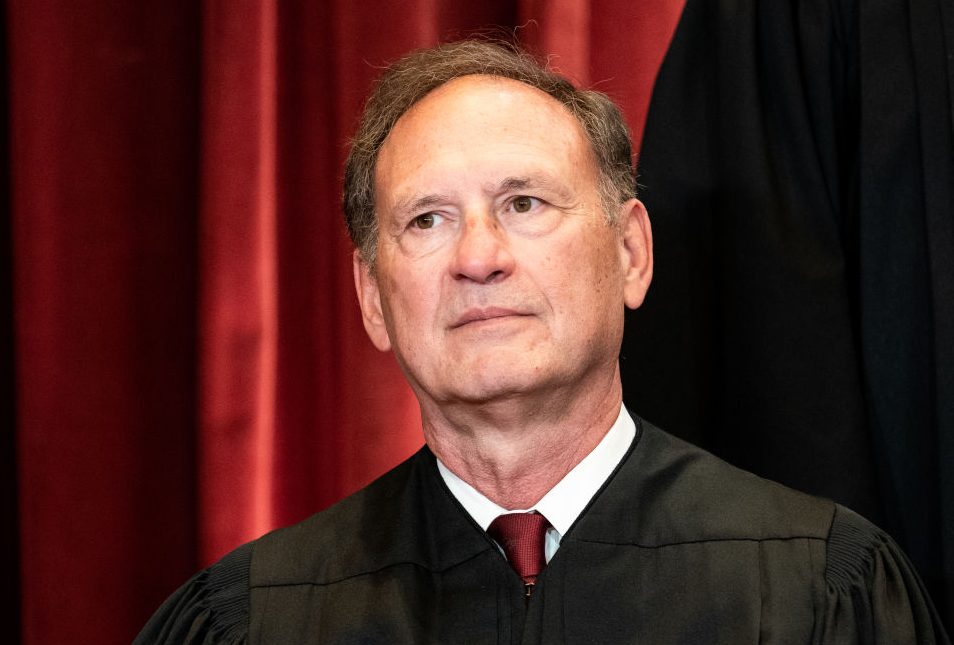The Virginia state elections had looked predictable. Nearly every poll showed the Democrats poised to win all three executive offices of governor, lieutenant governor and attorney general. Then, a series of violent texts from the Democratic candidate for attorney general surfaced.
In 2022, then-delegate Jay Jones had texted his Republican colleague Carrie Coyner saying that if he had a gun and two bullets, in a room with Adolf Hitler, Pol Pot and then-Virginia House Speaker Todd Gilbert, he’d shoot Gilbert twice. Then he called Coyner to say he wanted Gilbert’s wife to watch their children die in her arms.
Coyner expressed her horror over text. But Jones kept going: “Yes, I’ve told you this before. Only when people feel pain personally do they move on policy”. Coyner replied, “It really bothers me when you talk about hurting people or wishing death on them.”
The texts are two years old but correspond to a present fear that extremism is on the rise, and that it’s becoming mainstream to believe violence can and should be used to effect change.
The scandal has clearly given the Republicans a chance to claw back a victory. The three GOP candidates struggled to display unity after months of internal disputes, following allegations that their candidate for lieutenant governor John Reid had been posting gay porn on Tumblr, which he denies. In April, the Republican Governor Glenn Youngkin was calling for Reid to stand down. On top of this, having a Republican President and Governor makes the race a tricky defensive battle, particularly when it comes to addressing voters’ economic pain. Nor does it help that campaign spending by the Democrat candidate for governor, Abigail Spanberger, is more than double that of her Republican counterpart, Winsome Earle-Sears.
Up until now, the tactic on both sides has been to bring back the 2021 playbook. Virginia Democrats presented the election that year as a vote against Trump by tying the state’s Republicans to him. The Republicans campaigned on small-scale, mainly school-level iterations of culture war issues. Youngkin wanted single-sex bathrooms and locker rooms, parental approval for pronoun changes and boys out of girls’ sports. He won.
Covid was still a fresh wound then. Lockdowns, school closures and the threat of an overreaching state were firmly in the minds of voters. Remote learning had exposed many parents to the bizarre propaganda which students were actually being taught in schools. Critical race theory and transgender ideology weren’t just knotty issues to be debated at the federal level, but ideas being taught to Virginia’s children.
But four years later, it’s not clear that Virginia’s Republicans can win on these issues anymore. Winsome Earle-Sears knows how to rally a pro-MAGA crowd already inclined to listen, but she doesn’t know how to convince suburban moms that she’s not as unhinged as social media clips make her out to be. The former Marine and self-made immigrant from Jamaica (and author of a book called Stop Being a Christian Wimp!) has fighting spirit, but sometimes to her disadvantage.
During the gubernatorial debate, Earle-Sears went on the offensive. She talked over the ex-CIA, three-term congresswoman Abigail Spanberger dozens of times, as she attempted to wrench answers out of an opponent unwilling to give them. Spanberger refused to answer Earle-Sears and received her barrage of questions with only a smug, blank smile.
Why was Spanberger allowing nude, biological males in girls’ changing rooms? Nothing. Why couldn’t she call for Jay Jones to be disqualified as a candidate? Nothing. “Would it take him pulling the trigger,” Earle-Sears asked, “is that what would do it? And then you would say he needs to get out of the race, Abigail? You have nothing to say? Abigail!” Abigail stared off into the distance, mute and apparently deaf.
It was illustrative of the way the Democrats are approaching the Virginia election: stand back and hope your opponent makes a fool of himself or herself first. Perhaps it’s a lesson learned from the previous Democrat candidate for governor, Terry McAuliffe, who lost his lead after a debate gaffe, saying “I don’t think parents should be telling schools what they should teach”.
Spanberger and her running mates are for the most part letting the President do the talking, and as in 2021 are portraying the state election a mini-referendum on Trump’s leadership in the run-up to next year’s midterms. As northern Virginia is home to a large number of federal workers, the government shutdown could boost votes in the Democrats’ favor if they can pin the missed paychecks and federal layoffs on the President.
Like most of her party, Spanberger struggles to distinguish herself without using Trump as a foil. After the debate, she wrote in a statement that Winsome Earle-Sears’ “loyalty to Donald Trump will always come first, no matter the cost to Virginians and their families” because she refused to call on Trump to end the shutdown. (Of course, neither did Spanberger call on her party to budge.) Jay Jones, still somehow in the race, wrote on X after the debate that this election is a decision between a governor “who defends our freedoms, protects our democracy, and prioritizes the needs of Virginians – or one who takes directives from Donald Trump.” He has promised he would use his power as AG to go after the President, saying that he “can’t wait to see Trump in court”. Trump responded, calling Jones “a third-rate intellect” who “should not be allowed to be running for that office”.
Spanberger’s number two, Ghazala Hashmi, cites Trump – Trump’s hate, specifically – as the impetus to a career in politics. “I know the fear of being attacked. Trump’s hate pushed me to run and flip the State Senate”, she says in a campaign ad. “I’ve taken on Trump before, and I’ll do it again as our lieutenant governor.” It’s a wonder that words like “fear”, “attack” and “hate” still hold water when used so casually, but the hope is that they’ll resonate with enough voters in this unusually fraught political climate.
Jones’s texts might have woken some voters up to the hypocrisy of cheap campaign statements like Hashmi’s. Still more, Spanberger’s refusal to say anything more than that Jones’s texts were “absolutely abhorrent” and that “we should always be focused and forceful in our denouncement of violence and violent rhetoric” – despite being asked three times by debate moderators whether she still endorsed him – might turn some voters off her.
By comparison, when the Democratic party of Virginia released a press statement calling on Earle-Sears to tell the Young Republicans implicated in the group chat scandal to stand down, there was no word salad. She wrote on X: “Easy, they absolutely must step down. Now it’s your turn, Abigail.” Despite Spanberger’s refusal to call for Jones to stand down, he announced during the AG debate that he was “held accountable” for his texts (as well as for a reckless driving conviction in 2022). Rather, as his Republican opponent Jason Miyares pointed out, he was caught. “You had three years to say you’re sorry, Jay, and you didn’t.”
Miyares, the incumbent AG, has overtaken Jones in some polls since the texting scandal. But even if Miyares ends up winning, the surge will look like something of a fluke, a stroke of luck that his opponent happened to be outed as a psychopath. Spanberger and Hashmi are still the favorites to win. The “us or Trump” strategy might have worked this time after all. If that’s the lesson for midterms, the rhetoric of animosity doesn’t look like it will be toned down anytime soon. Let’s just hope it stays rhetorical.


























Leave a Reply